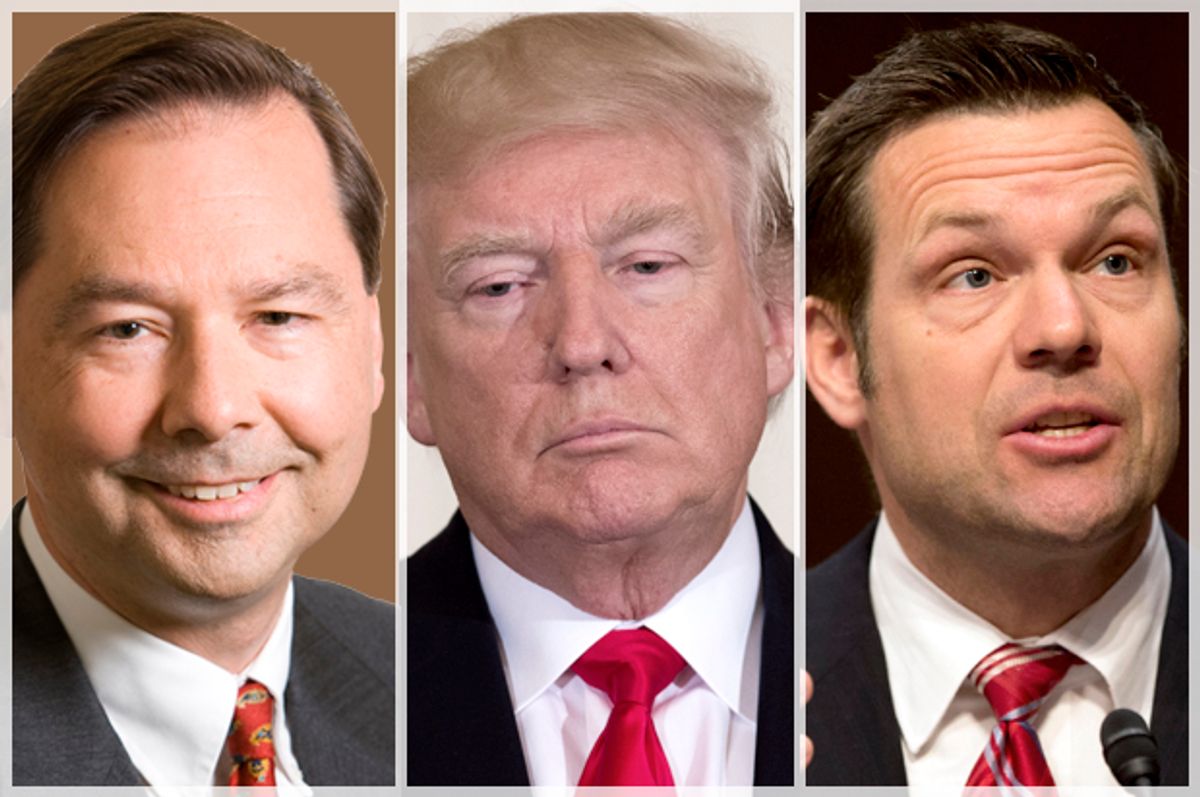President Donald Trump's voter fraud commission may have been created under the pretense of being bipartisan, but one of its members is now claiming that it is anything but.
Maine Secretary of State Matthew Dunlap says "the Commission’s superficial bipartisanship has been a facade."
"Despite diligent efforts to gain access, Secretary Dunlap has been, and continues to be, blocked from receiving Commission documents necessary to carry out his responsibilities," Dunlap claimed in a complaint filed in federal court. Dunlap went on to argue that his denial of access to the commission's work is directly due to the fact that he is a Democrat, arguing that "Secretary Dunlap and the other Democratic commissioners have been excluded from the Commission’s work."
The complaint adds, "The Commission’s operations have not been open and transparent, not even to the commissioners themselves, who have been deprived [of] access to documents prepared by and viewed by other commissioners."
The voter fraud commission, which goes by the official title of the Presidential Advisory Commission on Election Integrity, was created by the president to lend legitimacy to his false claim that he would have won the 2016 popular vote if not for undocumented immigrants. The commission is nominally chaired by Vice President Mike Pence and is supposed to contain 11 members — six Republicans and five Democrats. Because one of the other Democrats died last month, Dunlap is one of only four remaining Democrats.
Dunlap has raised this issue before. In October, both he and Alabama probate judge Alan King, another Democratic member, wrote separate letters to executive director Andrew Kossack insisting that they remain informed as to when and how the panel conducts its work.
Because Trump has insisted that his commission is not going to simply try to suppress likely Democratic voters to unfairly rig elections for Republicans, the accusation that Democratic members have been excluded from the commission's activity seriously undermines its credibility.
Further exacerbating the commission's woes is the fact that there are at least eight other lawsuits against it. Those filings either want to limit its operations or require it to make its proceedings more transparent. The commission has so far had two public meetings — one in Washington, D.C. in July and the other in New Hampshire in September.

Shares